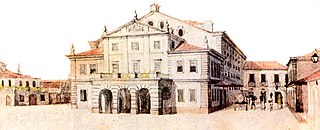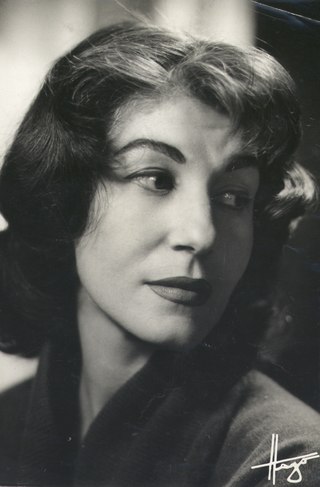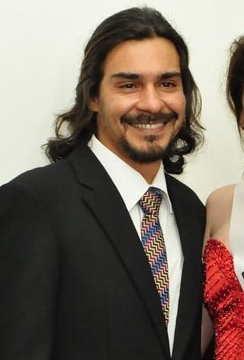Related Research Articles

Francisca Edwiges Neves Gonzaga, better known as Chiquinha Gonzaga was a Brazilian composer, pianist and the first woman conductor in Brazil.

Fernanda Pinheiro Monteiro Torres is a Brazilian film, stage and television actress and writer. She was born in Rio de Janeiro, the daughter of the actress Fernanda Montenegro and the actor Fernando Torres.

Letícia Birkheuer is a Brazilian model and actress.

Badi Assad is a Brazilian singer, composer and guitarist in the jazz and worldbeat genres.

Marieta Severo da Costa is a Brazilian stage, film and television actress. She is best known to youth audiences as the archetypal mother figure in popular sitcom A Grande Família (2001–2014), as well to mature audiences for portraying villains in telenovelas.

Bianca de Souza Mendes Comparato is a Brazilian actress. She has starred in Como Esquecer in 2010, as well as A Menina sem Qualidades and Somos tão Jovens, both in 2013, the latter for which she won the Grande Prêmio do Cinema Brasileiro as Best Supporting Actress for her role of Carmem Teresa. In 2016, she starred in the Netflix series 3%, gaining international attention and acclaim for her portrayal of the series' character, Michele.

Ana Rosa Guy Galego is a Brazilian actress.

Daniela Escobar Duncan is a Brazilian actress, television presenter and voice actress.

Gaetano Ricciolini was an Italian bass-baritone and a choreographer who helped introduce opera and dance in South America.

Cacilda Becker Iaconis was a Brazilian actress.

Betty Gofman is a Brazilian stage, film, and television actress. Descended from Russian-Austrian Jews, she is married to philosopher Hugo Barreto, with whom she has two daughters, the twins Alice and Helena, and she is the sister of actress Rosane (Roxanne) Gofman.
Simone Zucato is an actress, theater producer, translator and medical doctor.

Beatriz Ferreira Lessa, known as Bia Lessa, is a Brazilian filmmaker, theater director and former theater actress, and curator. She very often collaborates with her husband, Dany Roland.
Clara Ricciolini (1822-1869), was a Brazilian ballet dancer and stage actress. She played a pioneer role in the introduction of ballet in South America, and has been referred to as the only ballerina in Brazil during the mid 19th-century, when she was the a star attraction of the stage.

Ada Chaseliov was a Brazilian film, stage, and television actress.

Zola Amaro was an early Brazilian operatic soprano. She made her debut in on 4 September 1919 in the title role of Aida at the Thetro Municipal in Rio de Janeiro, receiving high critical acclaim. She was the first South American to perform at Milan's La Scala where she appeared under the baton of Arturo Toscanini in 1924. Amoro is considered to have been one of Brazil's most outstanding performers, both at home and abroad.

Ida Gomes, stage name of Ita Szafran was a Polish–born Brazilian actress.

André Gonçalves Barbosa is a Brazilian actor. He started his career when he was discovered in a poor community by director Roberto Bomtempo in the 1980s.
Joaquina Lapinha was an Afro-Portuguese (Brazilian) opera singer. She was the first Afro-American singer to have performed in Portugal and likely in Europe.

Maria d'Apparecida Marques was a Brazilian opera singer. She began her working career as a primary school teacher in Rio de Janeiro before becoming an announcer on various Brazilian radio broadcast stations. D'Apparecida had become a singer just as she was told she not join the city's Theatro Municipal because she was black and faced racial discrimination in Brazil. She relocated to Europe, giving recitals, appearing in concerts, at festivals and in major French opera houses. D'Apparecida was the first black female Latin American to play Carmen at the Paris Opera and the first black Latin American woman to perform with the company. She was a recipient of various awards and decorations such as the Officier of the Ordre des Arts et des Lettres, the Chevalier of the Légion d'honneur, the Medal of the City of Paris and the Medal of the Order of Rio Branco.
References
- ↑ Mariz, Vasco. A Música no Rio de Janeiro no tempo de D. João VI (Rio de Janeiro: Casa da Palavra, 2008)
You can help expand this article with text translated from the corresponding article in Portuguese. (August 2018)Click [show] for important translation instructions.
|